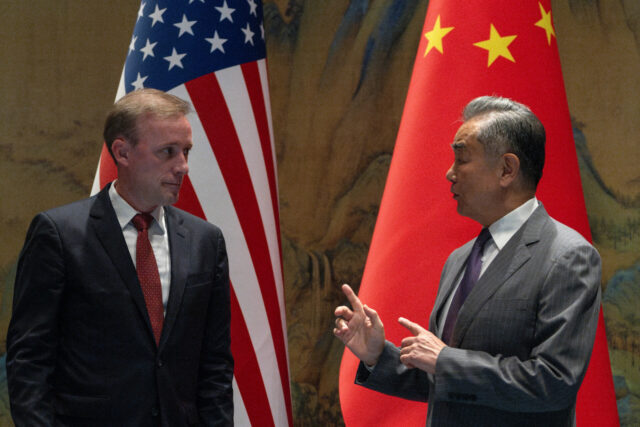Jake Sullivan, Biden’s National Security Adviser, is trying to diffuse the tensions between China and the USA in Beijing. On Wednesday, he met with top Chinese officials, on his second day to China. This comes in ahead of the Nov. 5 U.S. elections.
Sullivan and Wag Yi, China’s top diplomat and others are meeting for talks from Tuesday to Thursday. The two countries are at odds over several issues such as Chinese territorial claims from Taiwan, the South China Sea, Ukraine and the Middle-East.
“Over the past few years, bilateral relations have gone through twists and turns,” Wang told reporters on Tuesday.
“We’ll delve into a wide range of issues. This includes issues on which we agree on and those in which there are still differences that we need to manage effectively and substantively,” Sullivan said.
This is Sullivan’s fifth face-to-face meeting with Wang. However, this visit is his only trip to Beijing since the start of the Biden administration.
He wants to expand military-to-military talks down to the theatre command level. Washington hopes that this could prevent conflict in specific areas like the Taiwan strait.
Another discussion from the U.S. will be about China preventing the development of chemicals that can be made into fentanyl. Fentanyl is the leading cause of U.S drug overdoses. Sullivan also hopes to reach a mutual understanding about safety standards for artificial intelligence.
China, on the other hand, aims to communicate regarding its disapproval of U.S tariffs on manufacturing goods export controls targeting Chinese chip makers. It also plans to clear its views on its sovereignty claims over Taiwan.
In the last few months as U.S President, Biden has pushed to resolve issues with China through a diplomatic route. If current U.S Vice President Kamala Harris comes to power, she is likely to follow these footsteps.
However many analysts aligned with Republican former President Donald Trump see that approach as too soft, in the face of China’s increasingly assertive foreign policy.
(with inputs from Reuters)
















